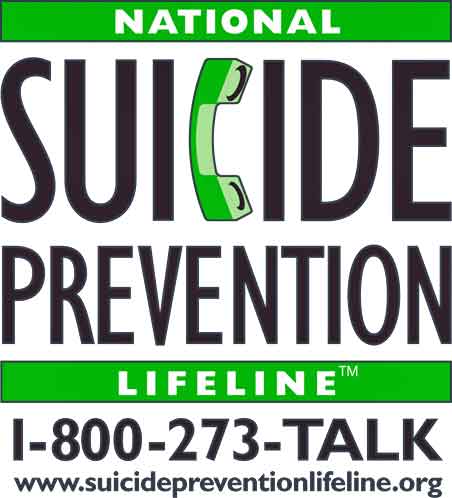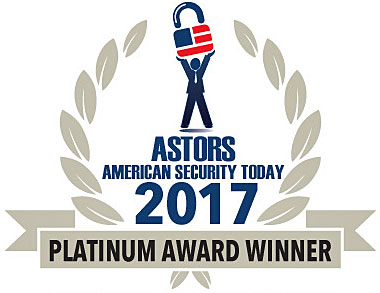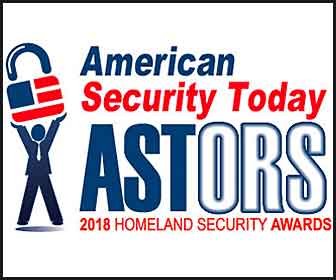
By Vincent J. McNally, MPS
Suicide is a major issue of concern within law enforcement, and with the extreme level of scrutiny thrust daily upon Police Departments they need to utilize all assets to support their officers.
The Employee Assistance Program (EAP) is the vehicle to assist the Sheriff or Chief of Police in developing a viable strong program to address suicide.
Below is the program I instituted for the FBI:
1.) The Police Chief or Director of the Law Enforcement/Fire Department Agency must take a pivotal dynamic role in supporting a program to reduce suicides by sending a personal one page letter to each employee’s (support and Police officer) residence describing suicide causes and who to contact in their Employee Assistance Program.
2.) The EAP counselors must be trained in First Responder Crisis (Hostage) Negotiation and incorporate a proactive response on every person that they receive information indicating behavior which are precursors to suicide.
3.) Prioritize training to all shifts/squads/roll-call on PTSD, Depression and suicidal clues and who to call in a confidential manner to allow the EAP to assess the individual.
4.) Target the high stress teams (undercover, child sexual exploitation, homicide, etc.) for short informative presentations on suicide prevention.
5.) Initiate a block of training for new recruits and their spouses on depression, post-traumatic stress and suicide.
6.) Develop a universal EAP Suicide Response Protocol approved by the legal unit on the services provided after a suicide by the department which would include a general informational conference by the highest ranking official with EAP presence, one-on-one EAP counseling offered, squad/shift psychological first aid format offered.
7.) Develop a stress management program which is part of the annual conference for all employees.
8.) Additional channels of communication to be developed between spouses and the EAP.
9.) Utilize the POST CRITICAL INCIDENT SEMINAR for all employees involved in a critical incident.
To promote resolution and provide follow-up Support, the FBI initiated a post-critical incident seminar (PCIS) as follows:
-
Employee assistance staff members invite employees who have experienced a critical incident to a 4-day seminar to discuss their reactions in a safe, protective, and confidential environment.
-
Also open to the spouses of employees involved in traumatic events, the seminar usually includes between 15 and 25 individuals.
-
Through sharing their experiences with others, participants receive peer support, which helps normalize their reactions.
-
They also learn about trauma and coping strategies to facilitate healing and recovery.
-
Additionally, peer support training permits participants to offer constructive interpersonal support in the future to fellow employees who may experience critical incidents.
10.) Develop or utilize a film, website or other internet electronic format to connect with the police department employees regarding suicide prevention.
The above proposed educational awareness initiatives will provide employees the information necessary to better cope with professional and personal problems and behavioral wrong turns that may lead to suicide.
Asking for help is not a sign of weakness, but a sign of strength.
One other point I would like to make is that after I was able to institute this program prior to my retirement, as outlined above, there were no suicides in the FBI for three years.
Prior to this time, we were averaging two per year that were reported.

BE A SURVIVOR-NOT A VICTIM
Reach out. One call can make a difference.
The National Suicide Prevention Lifeline is available to anyone by calling 1-800-273-8255.
THREE COURSES TO DEVELOP A CRITICAL INCIDENT STRESS DEBRIEFING/PEER SUPPORT TEAM
I – BASIC CRITICAL INCIDENT STRESS MANAGEMENT TRAINING
DESCRIPTION: The Basic Mitchell Model CISM Training is designed to present the core elements of a comprehensive, systematic and multi-component crisis intervention curriculum.
The two day course prepares participants to understand a wide range of current crisis intervention services including pre and post incident crisis education, significant other support services, on-scene support services crisis intervention for individuals, demobilization after a large scale traumatic event, small group defusing and the group intervention known as Critical Incident Stress Debriefing (CISD).
- The Basic CISM course specifically prepares participants to provide several of these interventions, specifically demobilization, defusing and CISD.
- The need for appropriate follow-up services and referrals when necessary is also described.
- Considerable evidence gathered to date strongly supports the multi-component crisis intervention strategy, which is discussed in this course.
- The Basic CISM Training is open to any person who wishes to know more about crisis intervention techniques such as CISD.
- Counselors, psychologists, social workers, human resource, disaster workers, public safety, security, corrections, military, industrial and school system emergency services personnel can benefit from the Basic CISM Training.
II – TRAUMA RESILIENCY TO CRISIS RESPONSES UTILIZING ACUTE TRAUMATIC STRESS MANAGEMENT (ATSM)
DESCRIPTION: This three hour training provides EAP Professionals “tools from the toolbox” to maintain their own resiliency to primary traumatic stress, secondary traumatic stress, post traumatic stress and burnout.
- Also, the participants will gain a better understanding of the skills and knowledge necessary to effectively intervene during traumatic events through the ten step program of Acute Traumatic Stress Management (ATSM).
- Early intervention reduces negative post traumatic effects to the survivor and the families.
LEARNING GOALS:
- Appreciate and understand the prevalence of critical incidents, trauma, post traumatic stress and secondary stress has on the victim.
- Understand the dynamics of compassion fatigue and burnout.
- Acquire the knowledge necessary for developing and maintaining resiliency from primary traumatic stress, secondary traumatic stress, burnout, post traumatic stress, and compassion fatigue.
- Understand the 10 Stages of Acute Traumatic Stress Management(ATSM), and factors that impact upon the implementation of ATSM
III – First Responder: Crisis (Hostage) Negotiation
DESCRIPTION: This course will provide the student with the basic theory and practice of crisis negotiation for the first responder.
Target Population: This course is directed toward those individuals who may find themselves in the role of negotiator when they are the initial responder arriving at the crisis situation.
- Course Objectives: Upon completion of the course the student will be in position to handle crisis negotiations until the trained crisis (hostage) negotiator arrives on the scene which usually is about 1 hour from the time of the inception of the hostage/barricade incident:
- Be aware of law enforcement priorities in a crisis situation.
- Be familiar with the major facets of hostage negotiation.
- Know the various alternatives of action in a hostage/barricade situation.
- Know what is and what is not negotiable.
- Know why incident commanders should not negotiate.
- Be familiar with the make up of a negotiation team.
- Understand the tactical use of a negotiator.
- Appreciate the importance of demands.
- Know how to cope with a deadline.
- Know the positive and negative aspects of face-to-face and telephone negotiations.
- Know the measure of negotiator progress
- Have an awareness of the concept of “Suicide by Cop”.
- Be familiar with the important points of surrender
- Be aware of the medical problems that may arise in a crisis situation.
About the Author
Vince McNally, who was recognized with a Platinum Award in the 2017 ‘ASTORS’ Homeland Security Awards Program, has provided over 100 workshops, seminars, and keynotes throughout the world.
He is an author, lecturer, and consultant.
-
Vincent J. McNally, Sea & Air Security
- Consultant and trainer on Critical Incidents and Trauma for Police and Emergency Responders
- Excellence in Homeland Security
A Navy Investigator in Vietnam, and a volunteer in training the Iraqi Police in Baghdad in Hostage Negotiations he continues to research the area of Post Traumatic Stress in returning veterans and contractors in Iraq.
After 31 years as an FBI Agent has conducted and led investigations in general criminal violations, espionage, terrorism, white-collar crime, organized crime, and drug violations.
He is also an instructor in Crisis (Hostage) Negotiations.
Vince retired after serving as Unit Chief of the Employee Assistance Unit (EAU) of the FBI in Washington D.C. after being the Program Manager for the FBI ‘s Critical Incident Stress Management teams at the FBI Academy in Quantico, Virginia.
In September 2001 Vince and others responded to New York City. He continues to assist first responders throughout the United States.

He also directed and provided FBI Employee Assistance to TWA Flight 800 and numerous responses throughout the U.S.
Vince serves on the Board of Scientific & Professional Advisors of the American Academy of Experts in Traumatic Stress (National Center for Crisis Management).
He is a Compassion Fatigue Specialist, Board Certified in Acute Traumatic Stress Management (ATSM), Board Certified in Emergency Crisis Response (B.C.E.C.R.) and is a Certified Member of the Green Cross Academy of Traumatology.
Vince can be contacted at Vincent.j.mcnally@gmail.com.
2018 ‘ASTORS’ Homeland Security Awards Program
AST focuses on Homeland Security and Public Safety Breaking News, the Newest Initiatives and Hottest Technologies in Physical & IT Security, essential to meeting today’s growing security challenges.
 The 2018 ‘ASTORS’ Homeland Security Awards Program, is organized to recognize the most distinguished vendors of Physical, IT, Port Security, Law Enforcement, Border Security, First Responders, (Fire, EMT, Military, Support Services Vets, SBA, Medical Tech) as well as the Federal, State, County and Municipal Government Agencies – to acknowledge their outstanding efforts to ‘Keep our Nation Secure, One City at a Time.’
The 2018 ‘ASTORS’ Homeland Security Awards Program, is organized to recognize the most distinguished vendors of Physical, IT, Port Security, Law Enforcement, Border Security, First Responders, (Fire, EMT, Military, Support Services Vets, SBA, Medical Tech) as well as the Federal, State, County and Municipal Government Agencies – to acknowledge their outstanding efforts to ‘Keep our Nation Secure, One City at a Time.’
To Learn More about the ‘ASTORS’ Homeland Security Awards Program, see 2017 ‘ASTORS’ Homeland Security Award Winners Honored at ISC East.

Over 100 distinguished guests from National, State and Local Governments, and Industry Leading Corporate Executives from companies allied to Government, gathered from across North America and the Middle East to be honored from disciplines across the Security Industry in their respective fields which included representatives from:
- The Department of Homeland Security (DHS) Science and Technology Directorate (S&T)
- U.S. Customs and Border Protection
- The Department of Justice
- The Security Exchange Commission
- State and Municipal Law Enforcement Agencies
- The Royal Canadian Mounted Police
- Leaders in Private Security
American Security Today will be holding the 2018 ‘ASTORS’ Awards Presentation Luncheon to honor Nominees, Finalists and Winners on November 14, 2018 at ISC East 2018 in New York City.
Nominations are now being accepted for the 2018 ‘ASTORS’ Homeland Security Awards at https://americansecuritytoday.com/ast-awards/.
For ‘ASTORS’ Sponsorship Opportunities and More Information on the AST 2018 ‘ASTORS’ Homeland Security Awards Program, please contact Michael Madsen, AST Publisher at: mmadsen@americansecuritytoday.com or call 732.233.8119 (mobile) or 646-450-6027 (office).
Please Take a Moment to Learn More…
SUICIDE: A National Epidemic: We Must All Do Something (Learn More)

















